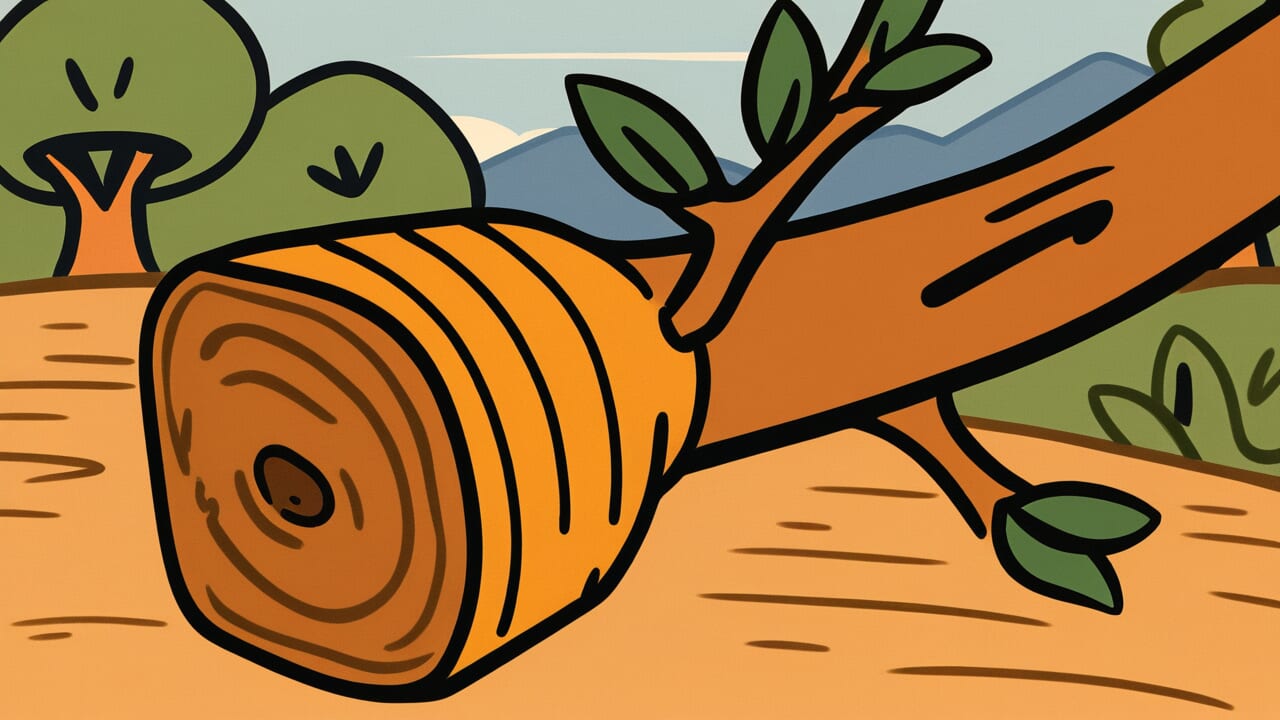How to Read “When the branch becomes larger than the trunk, it will surely split”
Eda, moto yori dai nareba kanarazu hiraku
Meaning of “When the branch becomes larger than the trunk, it will surely split”
This proverb warns that when subordinates or branch families gain more power than the main house, the entire organization will split apart.
Just as a tree branch that grows thicker than the trunk will eventually split from its own weight, an organization cannot survive when those who should be secondary become stronger than the central authority.
Balance collapses when the natural order reverses.
People use this proverb when a subsidiary company surpasses its parent company, when a branch family gains more wealth than the main family, or when subordinates hold more power than their superiors.
The saying reflects the understanding that organizational stability depends on proper balance of power.
Even today, this lesson offers important insights when considering the balance of authority and responsibility in organizations.
Origin and Etymology
The exact origin of this proverb has several theories, but it likely reflects the influence of classical Chinese thought.
The metaphor using “branch” and “trunk” has long been used in East Asian philosophy to explain order in organizations and families.
The word “hiraku” is rarely used in modern Japanese, but in classical language it means “to split” or “to crack.”
When you observe trees, you can see a natural phenomenon: when a branch becomes thicker and heavier than the trunk, it cannot bear the weight and splits at the joint.
This proverb applies this physical phenomenon to human social structures.
Japan has long had a culture that values hierarchical relationships like main house and branch family, lord and retainer, parent company and subsidiary.
This saying uses the familiar image of trees to clearly convey the danger of disrupting such order and vertical relationships.
It embodies the wisdom of ancestors who interpreted natural laws as lessons for human society.
Usage Examples
- That branch office has grown larger in sales than headquarters, but as they say, when the branch becomes larger than the trunk, it will surely split—maybe it’s time to reconsider our organizational structure
- It’s good that the branch family now supports the main family financially, but when the branch becomes larger than the trunk, it will surely split, so the clan might eventually fall apart
Universal Wisdom
The universal truth this proverb teaches is that every organization and relationship requires “proper balance.”
All humans have a desire to grow and gain strength. This is wonderful in itself.
But when that growth threatens the original order and relationships, people face difficult choices.
What’s interesting is that this proverb doesn’t condemn the branch’s growth itself.
The problem lies in the relative relationship where the branch becomes “larger” than the trunk.
The insight is that not growth itself, but the loss of balance brings crisis.
In human society, it’s natural for those who gain power to want independence and freedom.
But at the same time, they feel gratitude and responsibility toward those who nurtured them and the organization that forms their foundation.
When people waver between these two emotions, cracks begin to form in the organization.
Our ancestors found this delicate dynamic in the familiar presence of trees.
Growth is joyful, but when it disrupts overall balance, collapse eventually comes.
This calm observation is why the wisdom has been passed down through the ages.
When AI Hears This
The phenomenon where a branch breaks when it becomes thicker than the main body is mathematically inevitable.
When an object’s size doubles, its cross-sectional area becomes four times larger, but its volume and weight become eight times larger.
The supporting strength only increases fourfold, while the weight to support increases eightfold. This imbalance causes failure.
In the 17th century, Galileo calculated that “the thickness of animal bones must be proportional to the square of body length.”
That’s why elephant legs are surprisingly thick relative to body size, while ant legs are incredibly thin.
If you made a human ten times larger, their weight would increase a thousandfold while bone strength would only increase a hundredfold, and they’d be crushed by their own weight.
This is also why dinosaurs couldn’t grow beyond a certain size.
Skyscraper design faces the same problem. When height doubles, the area receiving wind pressure quadruples, and building weight increases eightfold.
That’s why taller buildings have abnormally thick columns on lower floors, with structural material ratios increasing sharply.
Beyond a certain height, most of the building fills with structural materials just to support itself, leaving no usable space.
Organizations are the same. When a department grows larger than headquarters, information transmission load increases exponentially and becomes uncontrollable.
Neither nature nor human creations can escape this mathematical constraint.
Lessons for Today
This proverb teaches you the importance of balancing growth with harmony.
It’s wonderful that you’re gaining strength and growing within your organization.
But you also need the perspective to calmly observe whether that growth is disrupting overall balance.
If you’re in a subordinate position, occasionally stop and think about how your growth is changing relationships with your superiors and the entire organization.
Just because you’ve gained strength doesn’t mean you should immediately choose independence or confrontation.
You can surely find directions that make the whole organization better.
Conversely, if you lead an organization, don’t fear the growth of subordinates or related organizations.
Have the courage to flexibly review the overall structure.
If the branch grows thicker, the trunk can grow thicker too.
Or you might create a new balance by redesigning the organization’s form itself.
What matters isn’t suppressing growth, but evolving relationships to match that growth.
This proverb is both a warning and a hint for creating better organizations.



Comments